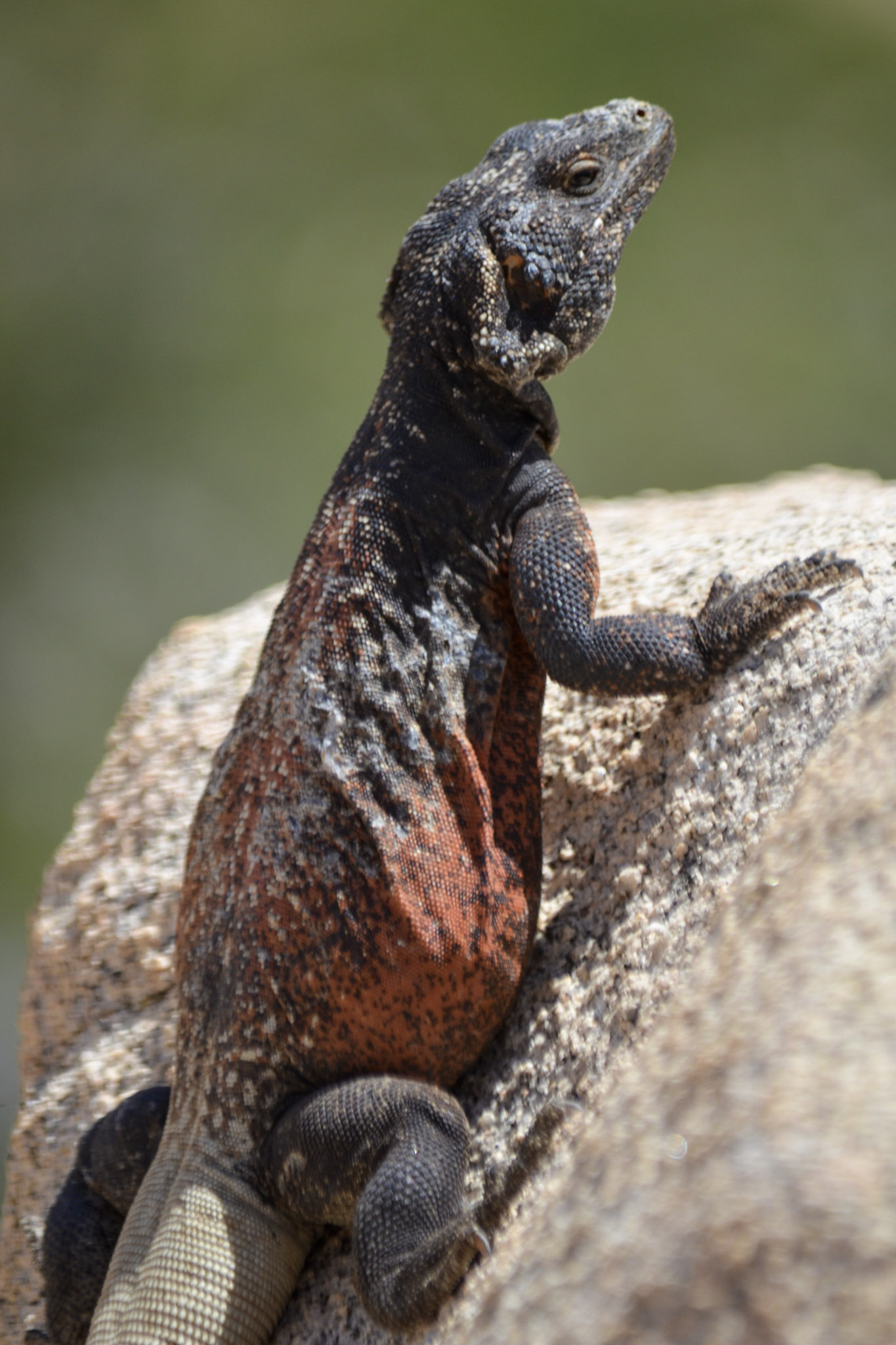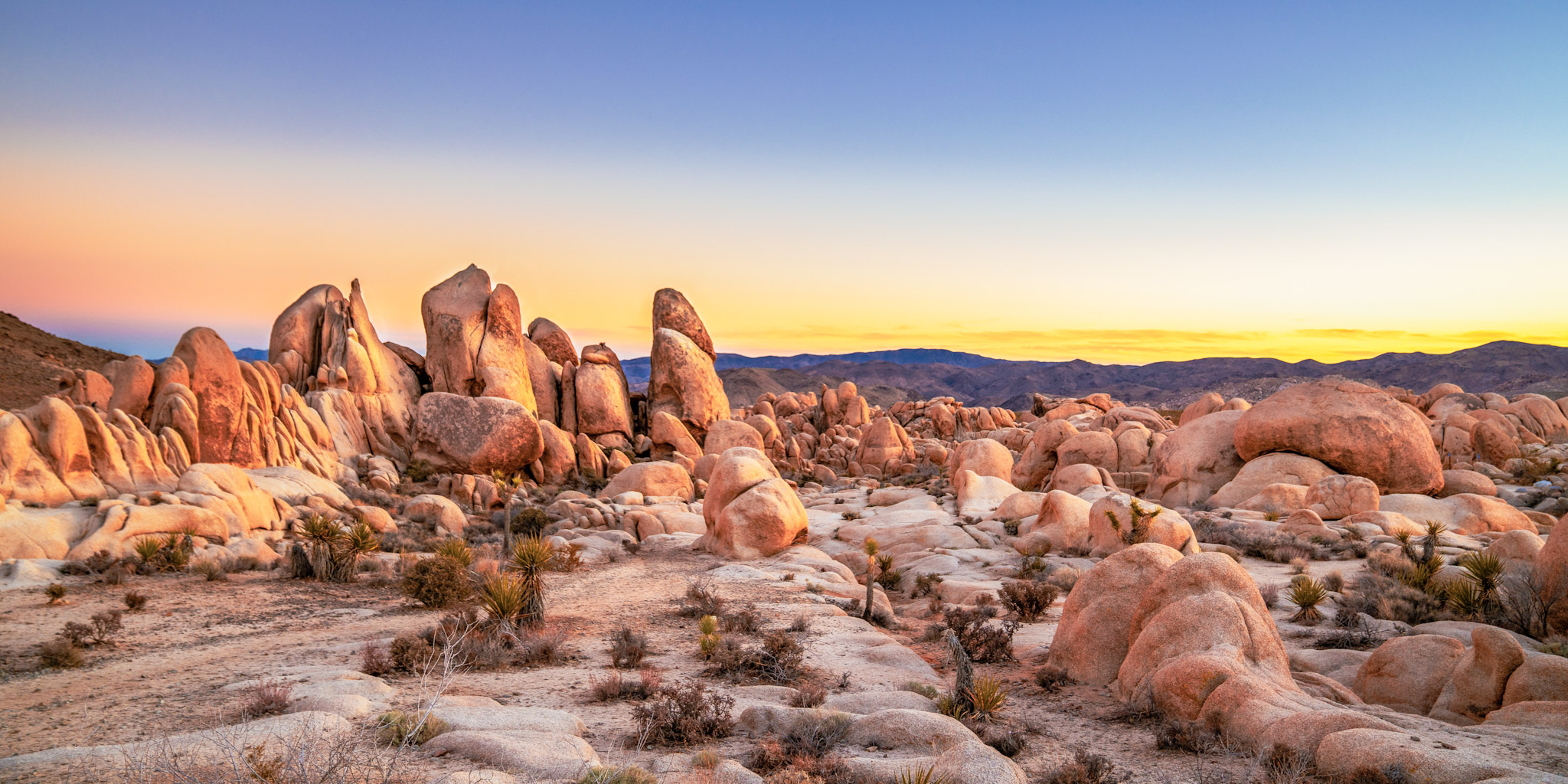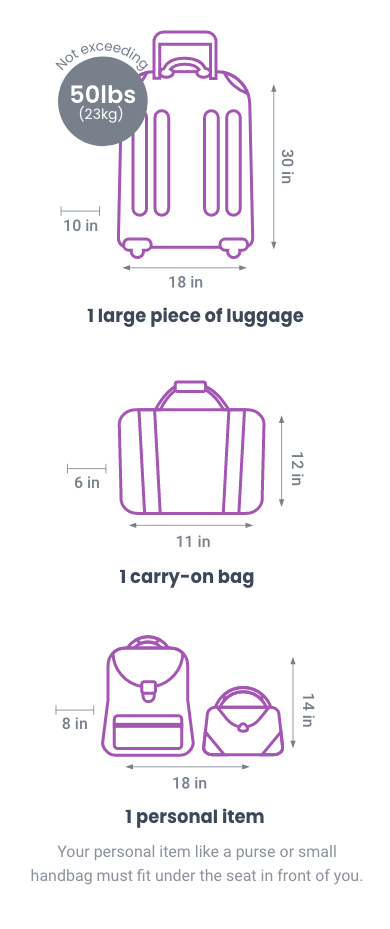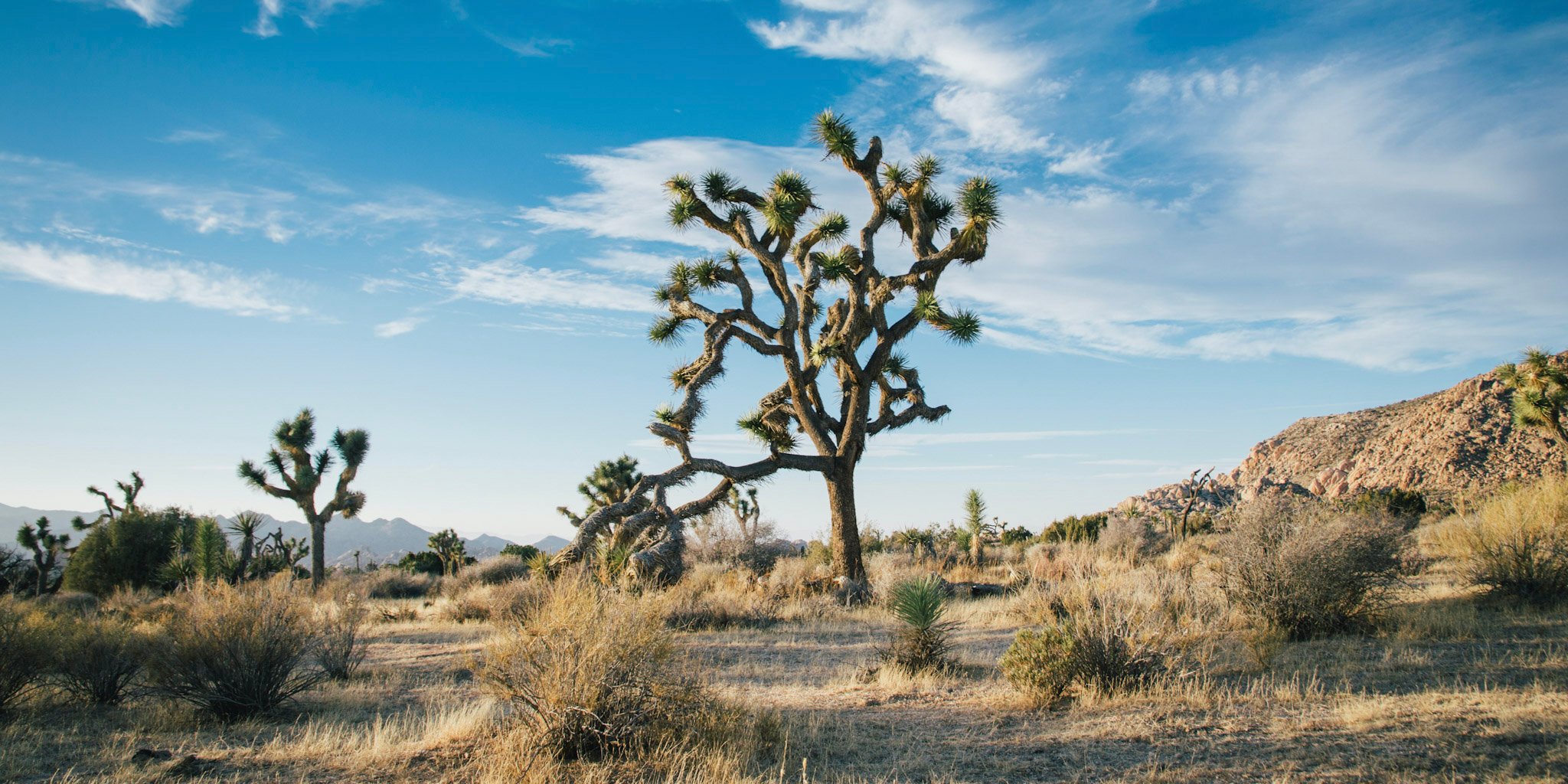About Joshua Tree
Overview
Just a short drive from Los Angeles but an entire world apart, Joshua Tree National Park is an expansive desert of uniquely shaped rocks, succulents and cacti, as well as the famous Joshua trees. This 800,000-acre rugged landscape contains many different types of rocks that have been formed over millions of years by extreme heat and rainfall as well as the harsh desert winds. You’ll travel in a westerly direction through the park and on the final day, summit Eureka Peak and take in the panoramic views of this magnificent ‘Wonderland of Rocks' and the surrounding terrain. This trip is operated by the Wildland Trekking Company, an authorized guide company in Glen Canyon National Recreation Area.
For camping itineraries, please note, this is a participatory camping trip, where all travelers will assist in setting up camp and cooking meals. Guides will teach you the best methods for quick set up and take down of tents and will lead the cooking, providing clear instructions and oversight. If you’ve never set up camp or cooked outdoors before, this is the perfect opportunity to learn under expert supervision!
Closest Major City: Palm Springs, CA
Trail Mileage: 26 miles, 42 km
Pack Weight: 35-45 pounds
Time Zone: Pacific Standard Time (GMT -7)
Emergency Number: 911


Packing List

Weather
Joshua Tree is in the desert and can be very hot in the summer, with temps in the high 90s (°F), and little shade. Winters can be cold, but also still warm and exposed to the sun. To be fully prepared, please follow the recommended clothing list closely.
| Month | High | Low |
| January | 62°F | 39°F |
| February | 64°F | 40°F |
| March | 71°F | 44°F |
| April | 76°F | 48°F |
| May | 85°F | 55°F |
| June | 95°F | 64°F |
| July | 99°F | 71°F |
| August | 98°F | 70°F |
| September | 93°F | 64°F |
| October | 81°F | 52°F |
| November | 70°F | 43°F |
| December | 61°F | 37°F |
Training Ideas
If you have access to hiking trails and a schedule to accommodate it begin walking and hiking in hilly/steep terrain. Nothing prepares you for a backpacking trip better than the activity itself! Try to get out at least 3 days a week. Start with short hikes (1-hour in length) with a light daypack. From week to week build the length and difficulty of your hikes and gradually increase your pack weight until you’re comfortably able to hike 6-8 hours a day carrying the weight you’ll have on your trip (refer to your trip packet for exact pack weight). It is ideal to begin your training at least 12 weeks prior to your trip. Also, be sure to use the boots you’ll have on your trip to break them in. The following is how a moderate program may look:
- First week of training
- Tuesday: one-hour hike with a daypack
- Thursday: one-hour hike with a daypack
- Sunday: 2-hour hike with a daypack
- Two weeks before the trip
- Monday: 3.5-hour hike with a 20-pound pack
- Wednesday: 2-hour hike with a 20- pound daypack
- Thursday: 3.5-hour hike with a 20-pound pack
- Sunday: 7-hour hike with the weight you’ll have on your trip
There are many other activities that are easily incorporated into your daily life to build your overall fitness. Cross-training is also important to strengthen opposing muscle groups and it helps to avoid over-use injuries.
Supplemental training ideas include:
- Climb the stairs at your office, house, park, or neighborhood with a backpack. Stair climbing is a fantastic way to simulate backpacking in hilly or steep terrain.
- Bike to work or when running errands. Bike around town or on country roads outside of your town/city. Cycling is a great way to build endurance and strength in your legs.
- Gym activities include step aerobics, treadmill, bicycling, or elliptical trainers to name a few. A modest weight training program focusing on the muscles that support the ankles, knees, back, and shoulders is also beneficial.
- Swimming is a great way to build endurance and cardiovascular fitness and is easy on the joints.
- Walk to work instead of driving. Run your errands by walking and carrying your groceries home in a backpack.
- Yoga and/or Pilates classes can build strength throughout your body while also improving your flexibility.
- Intramural sports.
- Jogging is another option, however, if you are not a regular runner it can easily lead to injuries that backpacking may then exacerbate. Undertake a jogging routine with care.
Tipping
Tipping Suggestions: Tips for Guides, drivers and restaurants are not included. Tips provide supplemental income, and, while not mandatory, are greatly appreciated. If the local teams have added to the experience, please reward them.
| Guides | USD $20-25 per person/per day | |
| Drivers | USD $3-4 per person/per day |
FAQ
Will I get access to water that is safe to drink? Water sources for this backpacking trip will include water picked up en route from caches. The Wildland Trekking guide carries the resources to properly and safely filter natural water sources for the group. Guests must bring capacity for water, either in hydration bladders (recommended) or water bottles that equal 4 liters.
What is the disposal process for waste? All trash and solid waste will be packed out. For solid human waste, guests will dig catholes. Wildland Trekking guides will supply the resources and training for this on day one.
Do you recommend travel insurance? While not required, we highly recommend all Travelers get travel insurance for their trip to protect themselves from the unknown! Check out travel insurance options from our partner, worldnomads.com or from a provider of your choice.
How much should I pack? As we will be using shared transfers and spaces throughout our tour we recommend all Travelers pack as lightly as possible. Please review our luggage restrictions below.
Will we have an experienced Guide? Your tour will be led by a trained, experienced professional with a solid guiding background, years of personal wilderness and hiking experience, medical certifications, and a passion for leading people into breathtaking landscapes.
Important note: Guides are required to take 8 hours of each 24-hour period to sleep, recuperate, take personal/downtime/ etc. In addition, as part of the 8 hours off they must sleep/rest or be in their tents uninterrupted for a minimum of 5 hours each night. We ask guests to respect these requirements and not interrupt Guides’ time off and sleep time unless there is a true (life-threatening) emergency
Do you provide any gear? We provide top-of-the-line backpacks, tents, sleeping bags, sleeping pads, trekking poles, stoves, cookware, bowls, cups and utensils. All our guides carry company-issued first aid kits, satellite phones (for emergencies only) and epinephrine kits (for allergic emergencies).
What about food? We provide a diversity of foods containing the necessary nutrition for sustained energy output. Meals are made from staples that travel well in the backcountry - rice, pasta, lentils, beans, couscous, oatmeal, granola, etc. Meals are also supplemented with trail foods such as crackers, cheese, granola, energy bars, fresh and/or dried fruit, and energy drink mixes.
We regularly accommodate vegan, vegetarian, kosher, and non-gluten diets and will make adjustments for food allergies. In addition to your personal belongings, you will be responsible for carrying a portion of the food.
Important note: It’s critical that you include your dietary needs in your Traveler form - it’s too late once you’ve arrived!
What tents will we be using? Typically, tents will be 1 or 2-person camping tents, single occupancy.
Will I have access to Wifi? No, take this time to unplug and enjoy nature and the adventure with your fellow Travelers.
What facilities are available? Please be aware that not all campsites have shower facilities. If that is the case, your Guide will take the group to a place to shower. Please have cash or spare change on hand as you may need to purchase shower tokens.
Luggage Restrictions
.jpg)


